The velocity time graph of a ball of mass 20g moving along a straight line on a long table is given in (figure) How much force does the table exert on the ball to bring it to rest? 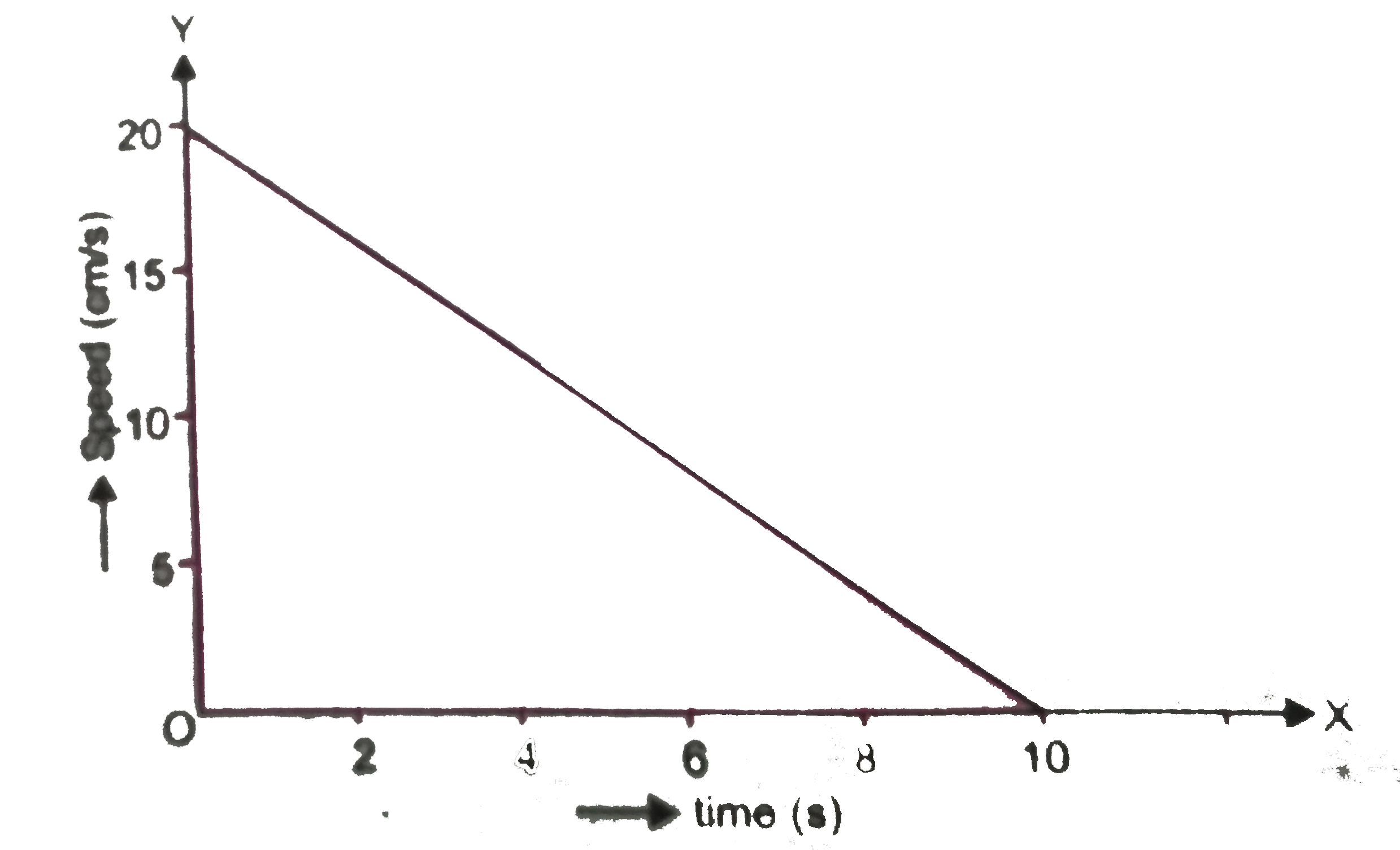
The initial velocity of the ball is 20 cm s−1. Due to the frictional force exerted by the table, the velocity of the ball decreases down to zero in 10 s. Thus, u = 20 cm s–1, v = 0 cm s−1 and t = 10 s. Since the velocity-time graph is a straight line, it is clear that the ball moves with a constant acceleration. The acceleration a is
a=v−ut
=0 cm s−1 -20 cm s−1/10s
=-2 cm s−2=-0.02 ms−2
The force exerted on the ball F is , F=ma=(20/1000)kg×(−0.02ms−2)
=−0.0004N. The negative sign implies that the fricitonal force exerted by the table is opposite to the direction of motion of the ball.
Topper's Solved these Questions
Similar Questions
The velocity versus time graph of a body moving in a straight line is as shown in the figure below
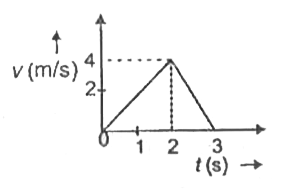
View SolutionThe velocity time graph of a particle moving in a straight line is given line is given in the figure. Then starting from t=0, the particle
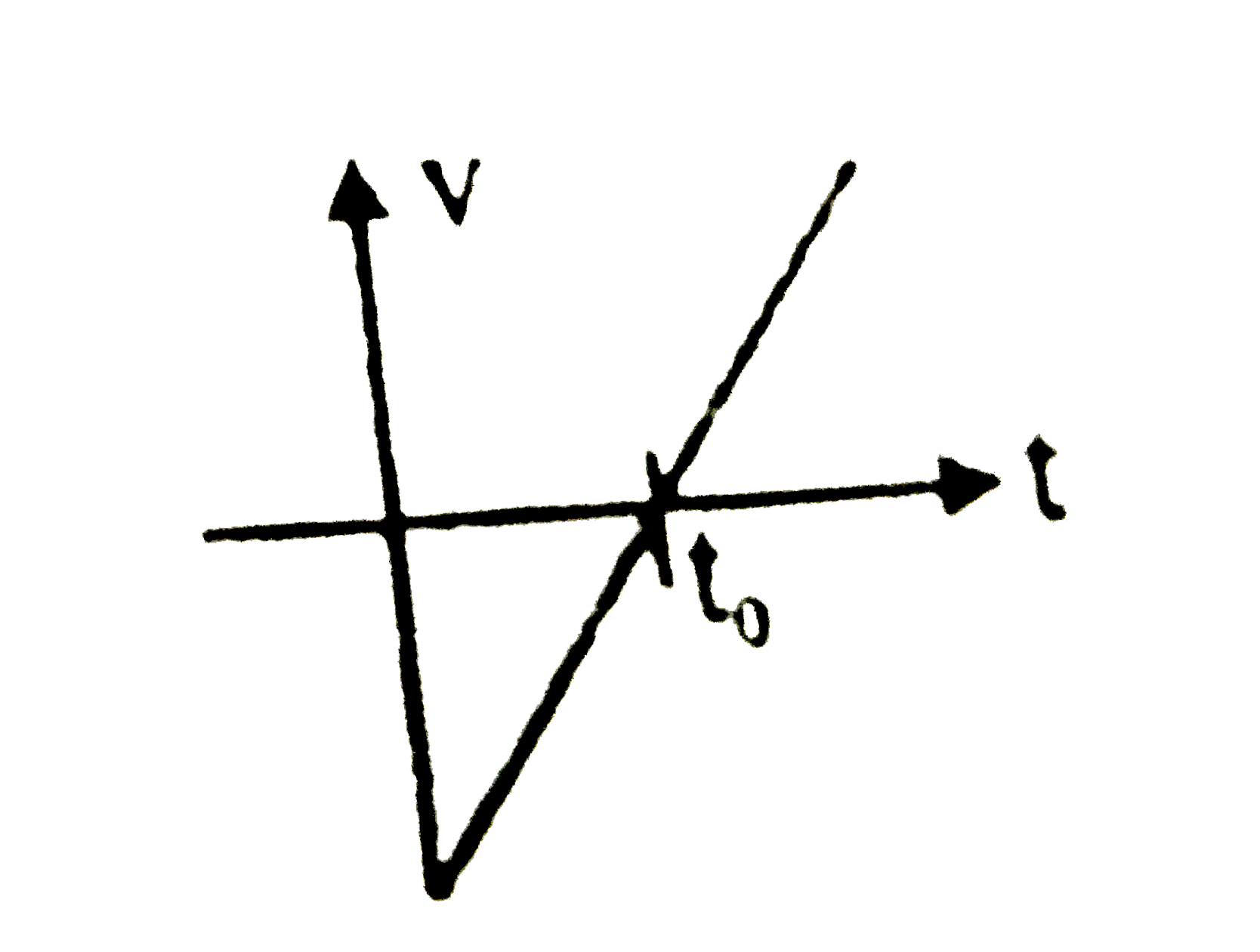
View SolutionThe velocity - time graph of a particle moving along a straight line is shown in the figure given below
The displacement of the particle in 5 second is
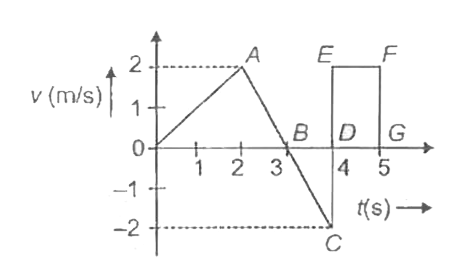
View SolutionThe velocity (v)-time (t) graph of a partide moving along a straight line is as shown in the figure. The displacement of the particle from t = 0 to t = 4 is
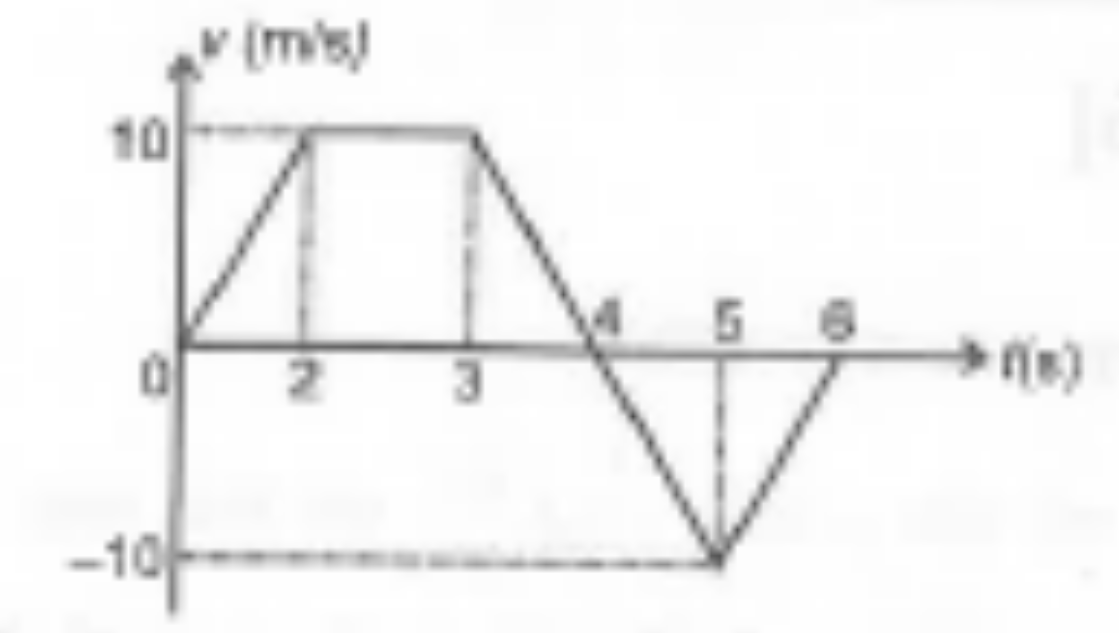
View SolutionVelocity-time graph of a particle of mass (2 kg) moving in a straight line is as shown in Fig. 9.20. Find the word done by all the forces acting on the particle.
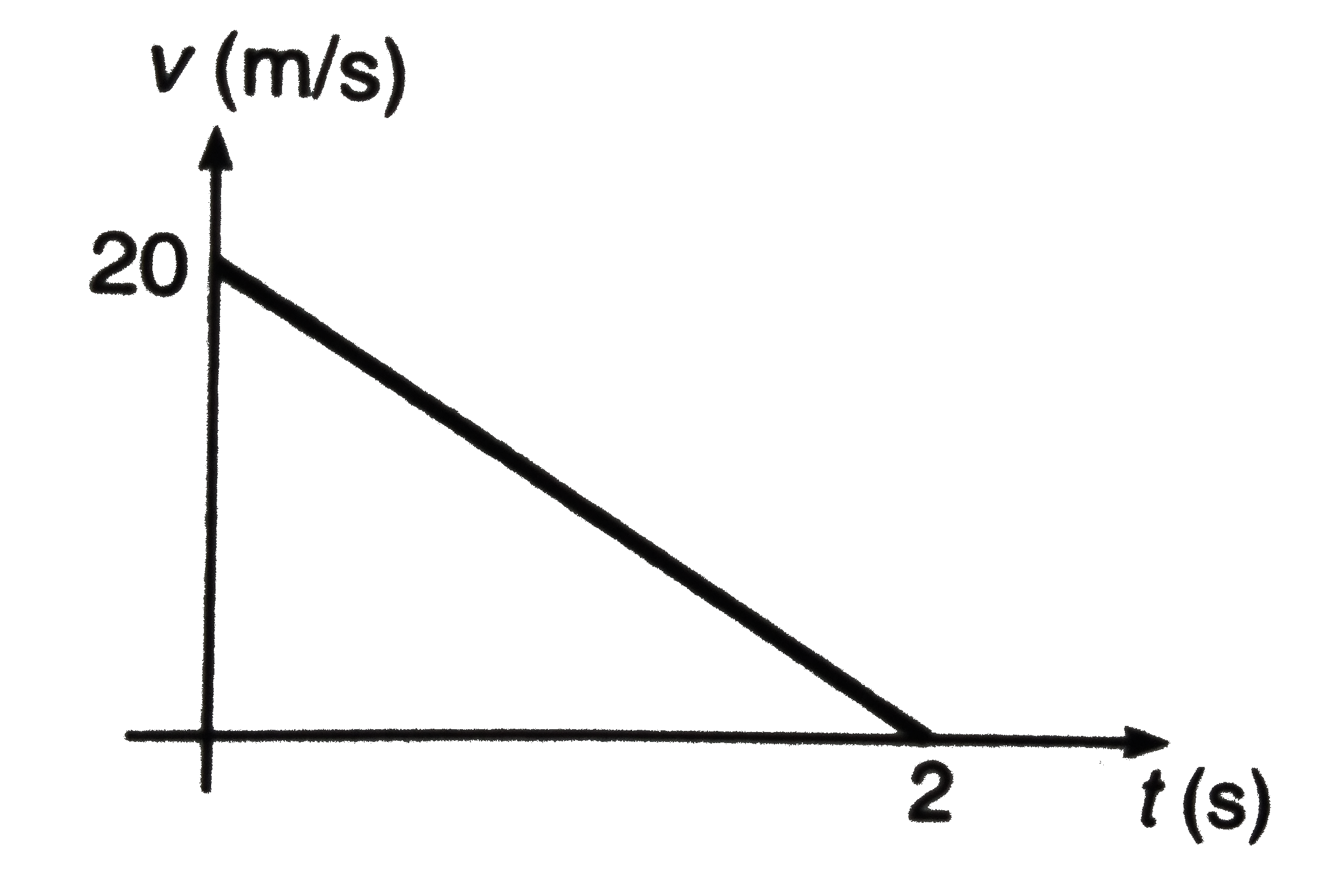 .
.
View SolutionVelocity-time graph of a particle of mass (2 kg) moving in a straight line is as shown in Fig. 9.20. Find the word done by all the forces acting on the particle.
 .
.
View SolutionThe figure shows velocity-time graph of a particle moving along a straight line. Identify the correct statement.
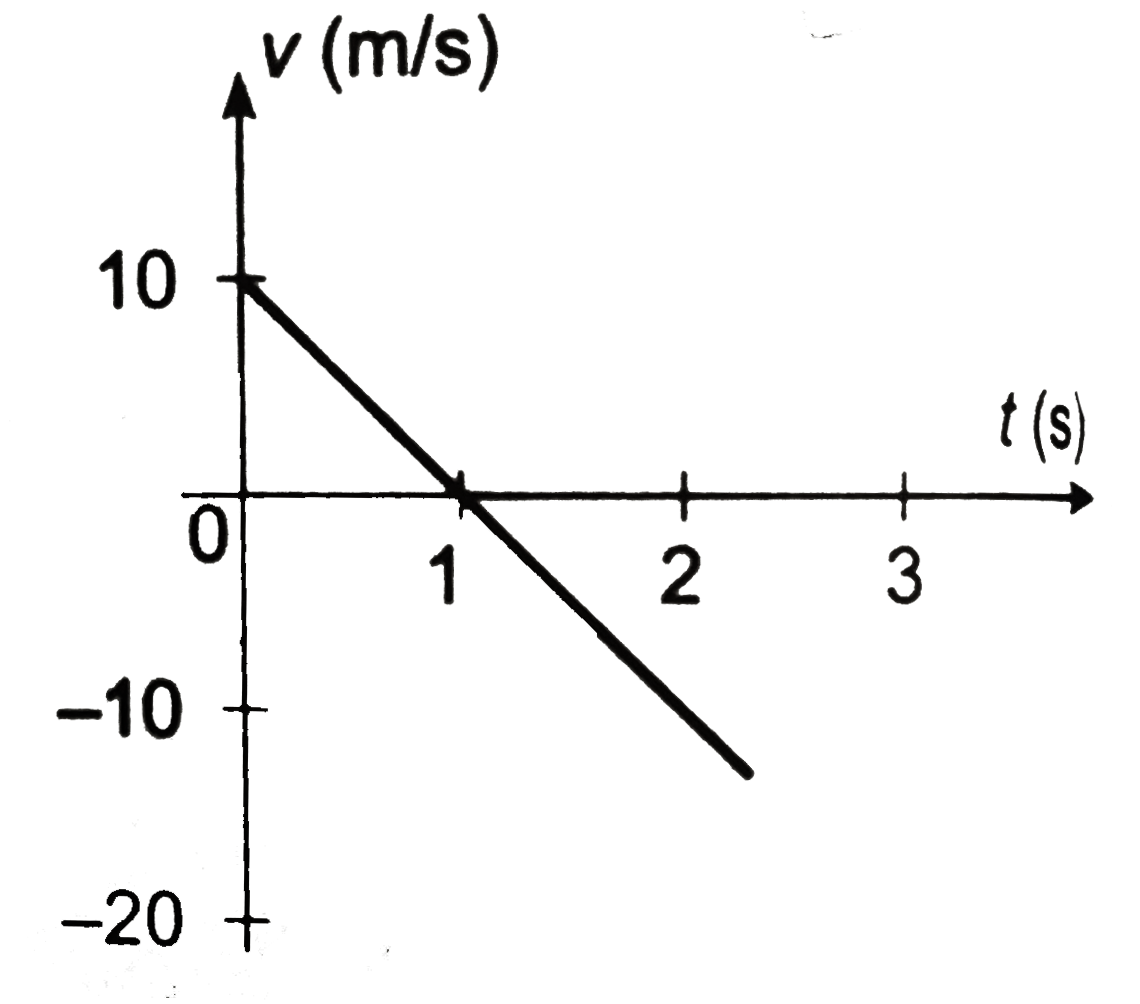
View Solution
The velocity displacement graph of a particle moving along a straight line is shown in figure.
Then the acceleration displacement graph is.
View SolutionVelocity versus time graph of a ball of mass 50g rolling on a concrete floor shown in (figure) Calcualte the acceleration and frictional force of the floor on the ball.
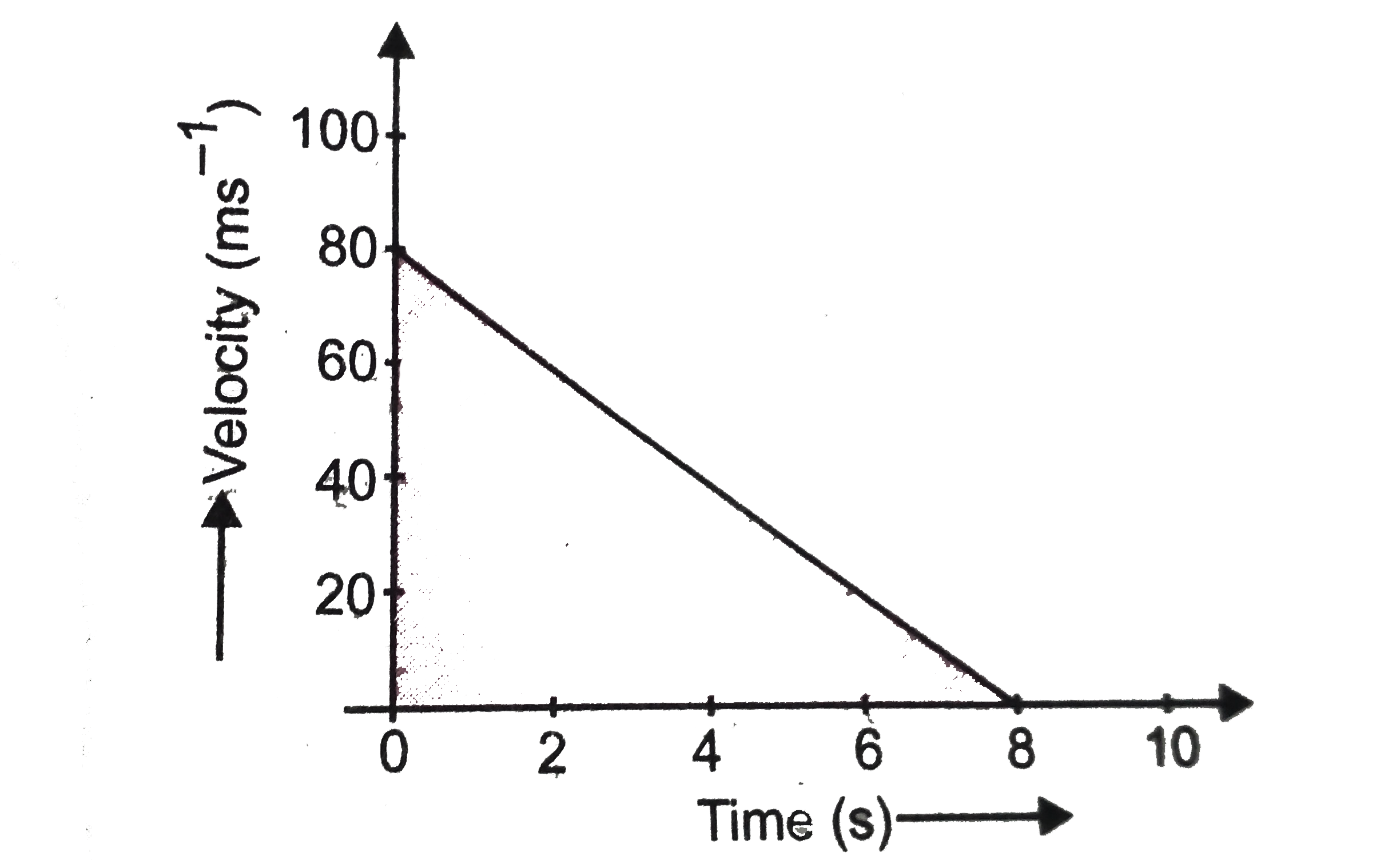
View Solution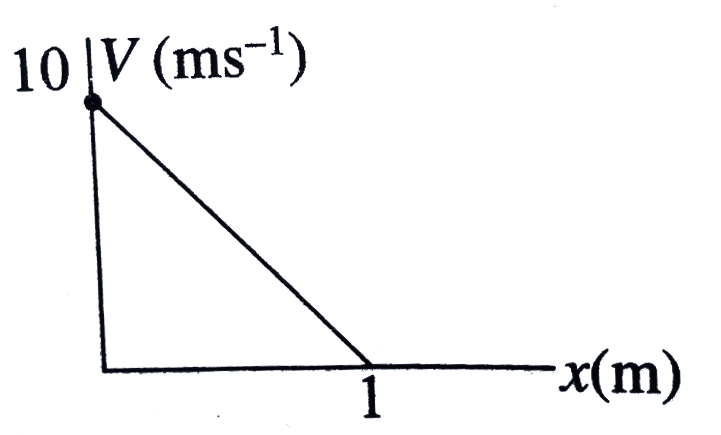
The velcocity displacement graph of a particle moving along a straight line is shown in figure. The velocity as function of x(0≤x≤1) is
View Solution
